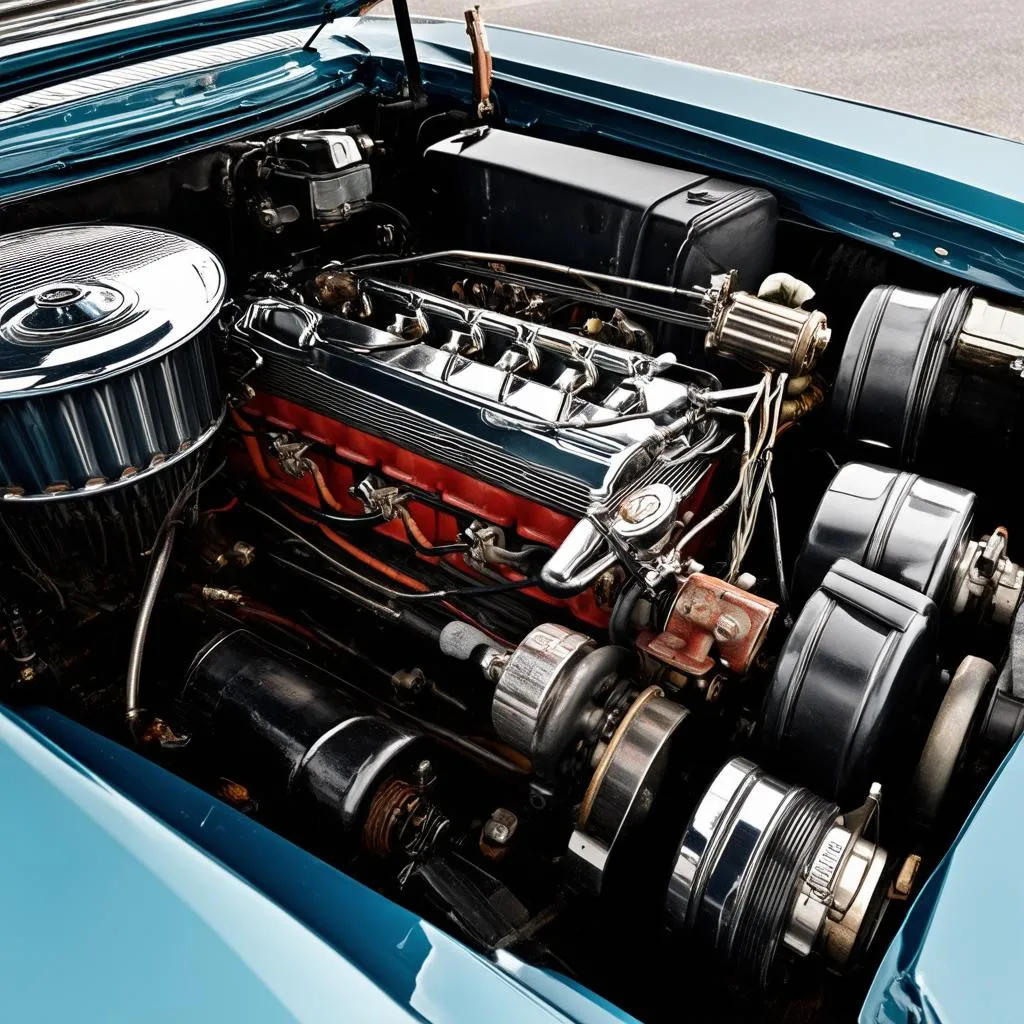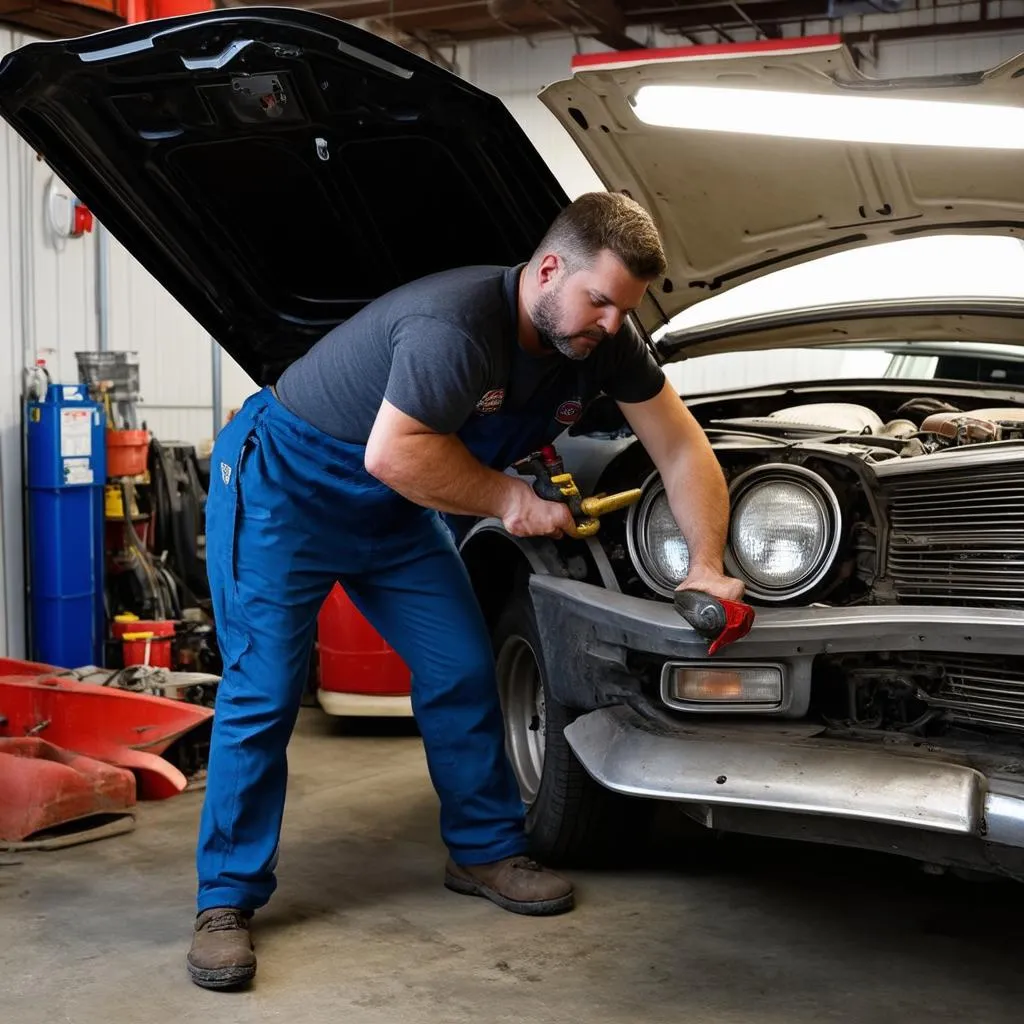Ever found yourself staring at your classic car’s engine, perplexed by a mysterious gremlin causing it to sputter? We’ve all been there! You start to wonder, “Were there even scan tools for older cars back then?”. It’s a question that plagues many vintage car enthusiasts, especially when troubleshooting those head-scratching electrical issues.
Decoding the Mystery of Pre-1990s Car Diagnostics
To understand the answer, let’s delve into the world of car diagnostics, both then and now.
The Era Before OBD-II
Before 1996, car manufacturers in the US (and globally to some extent) had their own proprietary diagnostic systems. Imagine needing a different decoder ring for each brand – a mechanic’s nightmare! These early systems, often using single-purpose tools, were rudimentary compared to today’s technology. For example, a mechanic working on a 1985 Mercedes-Benz 300D in Berlin, Germany might have needed a specialized tool just to read its engine codes.
Enter OBD-II: The Game Changer
In 1996, the OBD-II (On-Board Diagnostics, second generation) protocol became mandatory for all cars sold in the US. This standardized system revolutionized car diagnostics, making it easier for mechanics to access a vehicle’s internal computer and diagnose problems.
So, What About My Pre-1990s Classic?
Don’t despair! While your pre-1990s car might not be OBD-II compliant, there are still options for you:
- Early OBD-I Scanners: Some basic scan tools cater to early OBD-I systems, which started appearing in the late 1980s. These tools might not offer the same depth of information as modern scanners, but they can be invaluable for reading basic engine codes.
- Manufacturer-Specific Tools: If you’re lucky, you might find specialized scan tools designed for your specific make and model, even for pre-1990s vehicles. These are particularly common for luxury or performance cars. Think of it like finding a vintage record player – it might take some searching, but it’s worth it for the dedicated enthusiast.
- Adapters and DIY Solutions: Some resourceful individuals modify modern OBD-II scanners to work on older cars. However, this requires a deep understanding of car electronics and comes with risks.
 Vintage Car Engine
Vintage Car Engine
Navigating the World of Older Car Diagnostics
Here are some key takeaways for vintage car owners:
- Research is Key: Start by researching your car’s specific make, model, and year to identify any available diagnostic tools or workarounds. Online forums and enthusiast groups can be treasure troves of information.
- Consult a Specialist: Don’t be afraid to seek help from a mechanic specializing in older cars. They often have the experience and tools to diagnose problems even without sophisticated scan tools. Imagine taking your prized 1967 Mustang to a mechanic on Route 66 who’s been working on these classics for decades – they’ve likely seen it all!
- Embrace the Learning Curve: Working on older cars can be a rewarding learning experience. Familiarize yourself with basic mechanics and troubleshooting techniques. There’s a certain satisfaction that comes from diagnosing a problem in your vintage car using your own knowledge.
 Mechanic Working on Classic Car
Mechanic Working on Classic Car
FAQs About Scan Tools for Older Cars:
Can I use a regular OBD-II scanner on my 1988 car?
Unfortunately, most standard OBD-II scanners won’t work on cars manufactured before 1996.
Where can I find a scan tool for my classic Porsche?
Try searching for Porsche-specific diagnostic tools online, or check with Porsche enthusiast clubs and forums.
Is it worth investing in an older car scan tool?
It depends on your level of mechanical expertise and how frequently you work on your car.
Are there any universal scan tools that work on all older cars?
While a truly universal tool doesn’t exist, some scanners offer wider compatibility with different makes and models.
Keep Those Classics Rolling!
Diagnosing problems in older cars might require some extra effort, but it’s entirely possible with the right knowledge and resources.
For expert advice on diagnostic tools, software installation, and anything related to car repair, feel free to reach out to us on WhatsApp at +84767531508. Our team of automotive specialists is available 24/7 to assist you.
Do you have any other questions about car diagnostics or maintaining your classic vehicle? Let us know in the comments below! And be sure to check out our other informative articles on DiagXcar for more helpful tips and insights:
Let’s keep the passion for classic cars alive!


